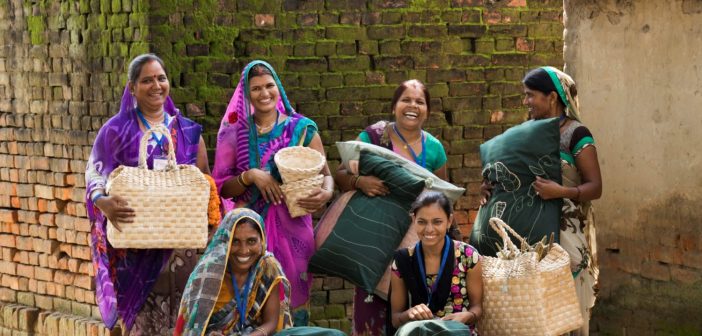Multi-Level Marketing (MLM), often referred to as network marketing or direct selling, has become a contentious topic. While some view it as a legitimate business model, others associate it with pyramid schemes. However, in the context of rural India, MLM, when implemented ethically, could offer unique employment opportunities for women. This article explores how Indian companies can leverage MLM to empower rural women and contribute to their financial independence.
The Challenge: Limited Opportunities for Rural Women
India’s rural landscape presents a unique set of challenges for women’s employment. Societal norms, limited access to education and skills training, and a lack of formal job opportunities often restrict their participation in the workforce. According to the World Bank, India’s female labor force participation rate stands at a mere 25.1%, highlighting the urgent need for strategies to bridge the gender gap.
The Potential of MLM for Rural Women
MLM presents a potential solution for these challenges. Here’s how:
-
Flexible Work Schedule: MLM businesses typically offer flexible work hours, allowing women to manage their household responsibilities alongside income generation. This flexibility is particularly attractive for women in rural areas who often shoulder the burden of domestic chores and childcare.
-
Low Entry Barriers: MLM businesses often require minimal upfront investment, making them accessible to women with limited financial resources. This is a stark contrast to traditional businesses that may require significant capital to start.
-
Skill Development and Training: Reputable MLM companies often provide training programs for their distributors. These programs can equip women with valuable skills in sales, communication, marketing, and financial management, fostering their personal and professional growth.
-
Building Confidence and Social Networks: MLM can be a powerful tool for building self-confidence and fostering social networks for women in rural areas. The interaction and support system within an MLM network can empower women, enabling them to overcome social barriers and step outside their comfort zones.
Mitigating the Risks: Ethical Practices are Key
While MLM offers promising prospects, ethical implementation is crucial to ensure its success for women’s empowerment. Companies must:
-
Focus on Product Quality and Value: The success of MLM relies on selling genuine products with demonstrable value. Companies should prioritize product quality and ensure their distributors are well-versed in the product’s benefits.
-
Transparent Compensation Structure: A clear and transparent compensation plan based on actual sales is crucial. Avoiding pyramid scheme tactics that emphasize recruitment over product sales is essential to maintain trust and sustainability.
-
Sustainable Income Potential: MLM companies should design compensation structures that offer realistic income-generating potential. Focusing on long-term growth through customer satisfaction and repeat sales, rather than quick profits through aggressive recruitment, is key.
-
Training and Support: Investing in training programs for distributors is essential. Training should cover product knowledge, sales techniques, financial literacy, and ethical business practices. Ongoing support systems can help distributors navigate challenges and ensure their success.
Case Studies: Success Stories in Rural India
Several Indian MLM companies have demonstrated the potential of this model for empowering rural women. For example, companies like Amway and Avon have training programs specifically designed for women in rural areas. These programs focus on financial literacy, communication skills, and product knowledge, equipping women with the tools they need to succeed.
Collaboration for Success: Building a Supportive Ecosystem
The success of MLM for rural women’s empowerment depends on a collaborative effort:
-
Government: The government can play a vital role by regulating the industry to ensure ethical practices and prevent pyramid schemes. Additionally, government initiatives like skill development programs for women can complement the training provided by MLM companies.
-
NGOs and Social Enterprises: NGOs and social enterprises can partner with MLM companies to provide additional training, financial literacy workshops, and access to microloans for women. This holistic approach can empower women and increase their chances of success.
-
Financial Institutions: Financial institutions can play a role by offering microloans or credit facilities specifically designed for women entrepreneurs in the MLM space. This can help them overcome initial financial hurdles and invest in their businesses.
Looking Beyond: Building Sustainable Livelihoods
MLM, when implemented ethically, can be a stepping stone for rural women. The skills and knowledge gained through MLM can empower women to pursue other entrepreneurial ventures or seek employment in formal sectors over time.
Conclusion: A Promising Path with Cautious Steps
MLM offers a unique opportunity to empower rural women in India by providing flexible employment opportunities, skill development, and a path to financial independence. However, ethical implementation is crucial to ensure sustainability and avoid predatory practices. By focusing on product quality, transparent compensation structures, and training programs, Indian companies can leverage MLM as a tool for women’s empowerment and contribute to a more inclusive and prosperous rural






